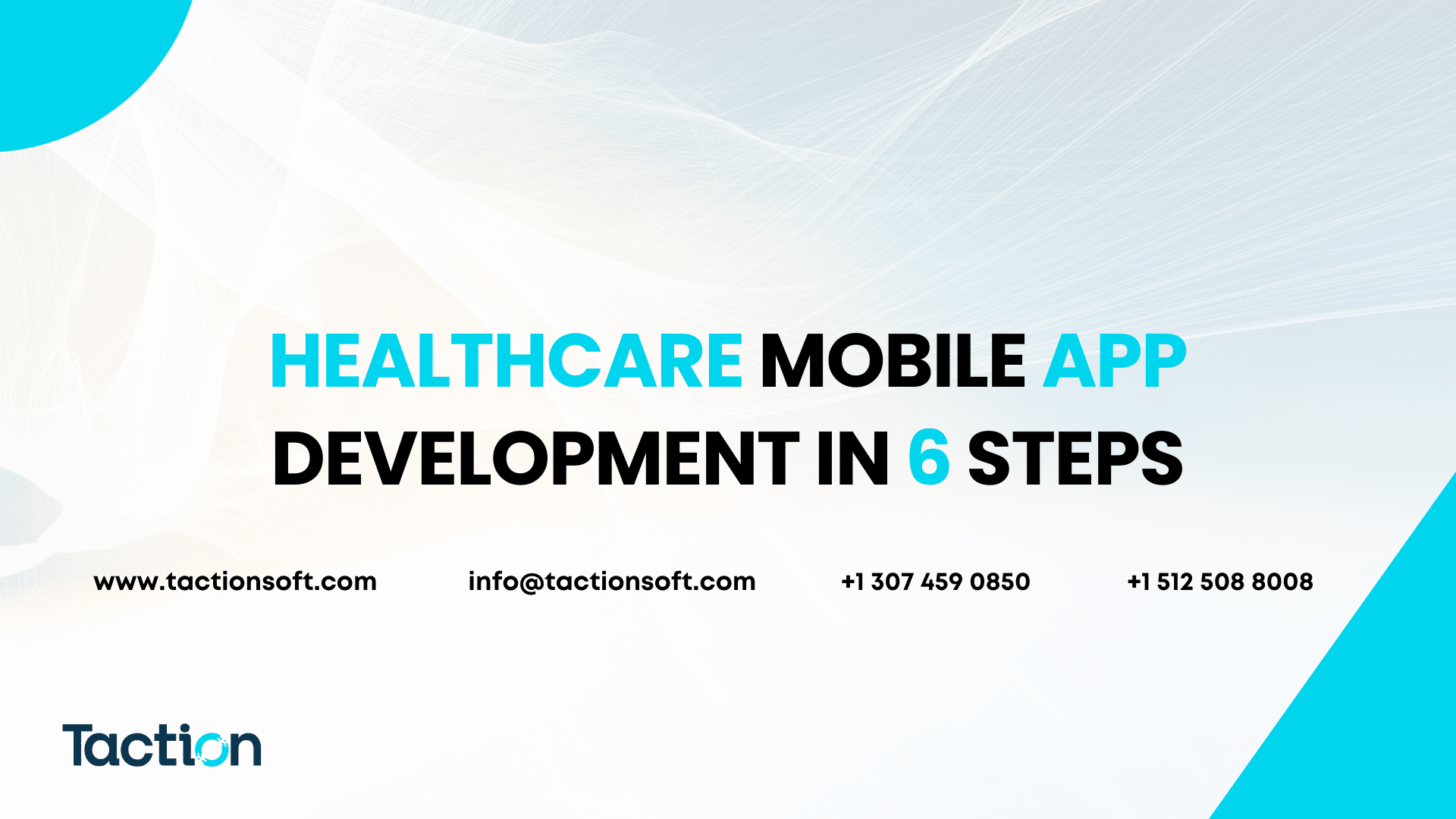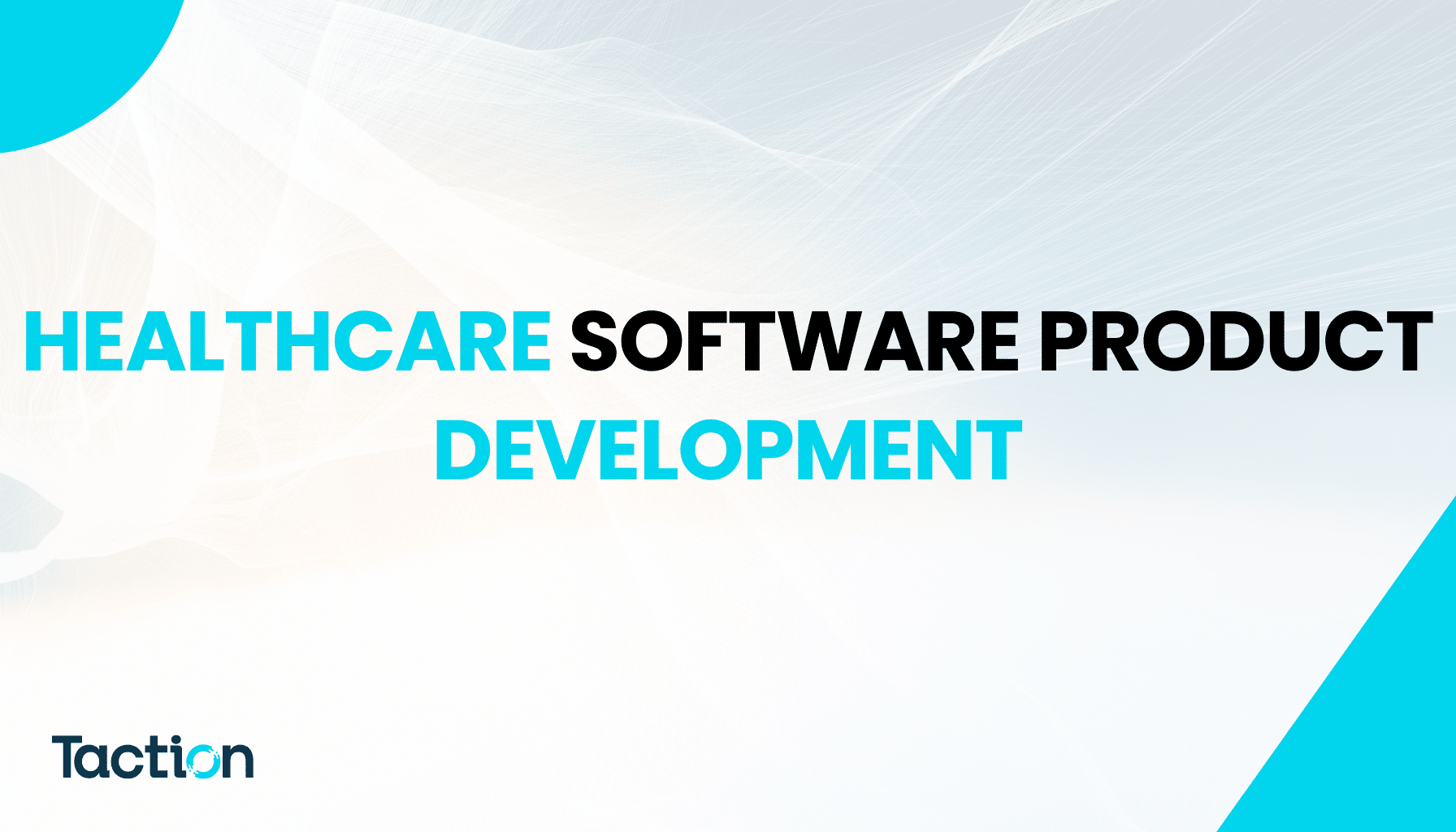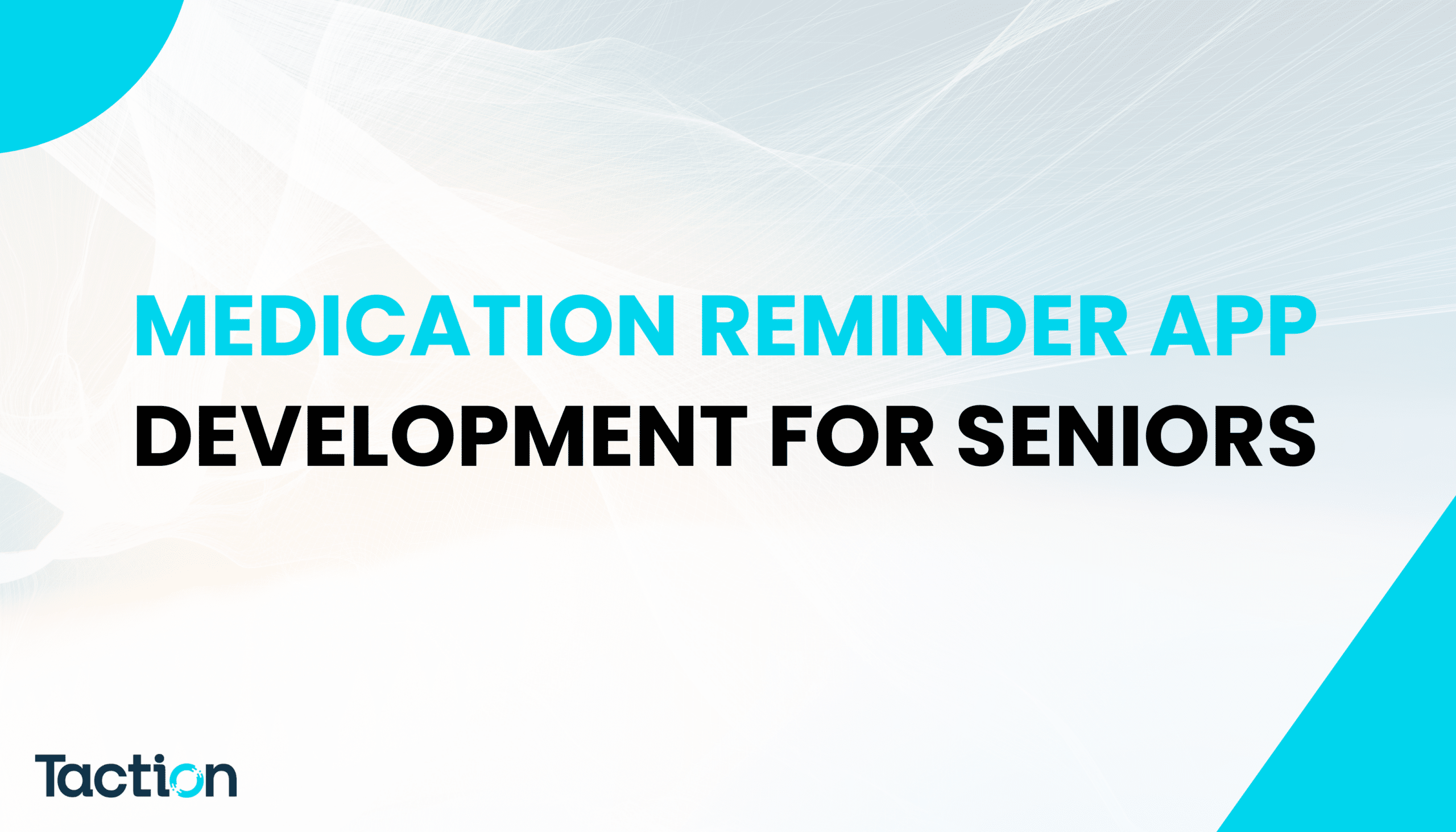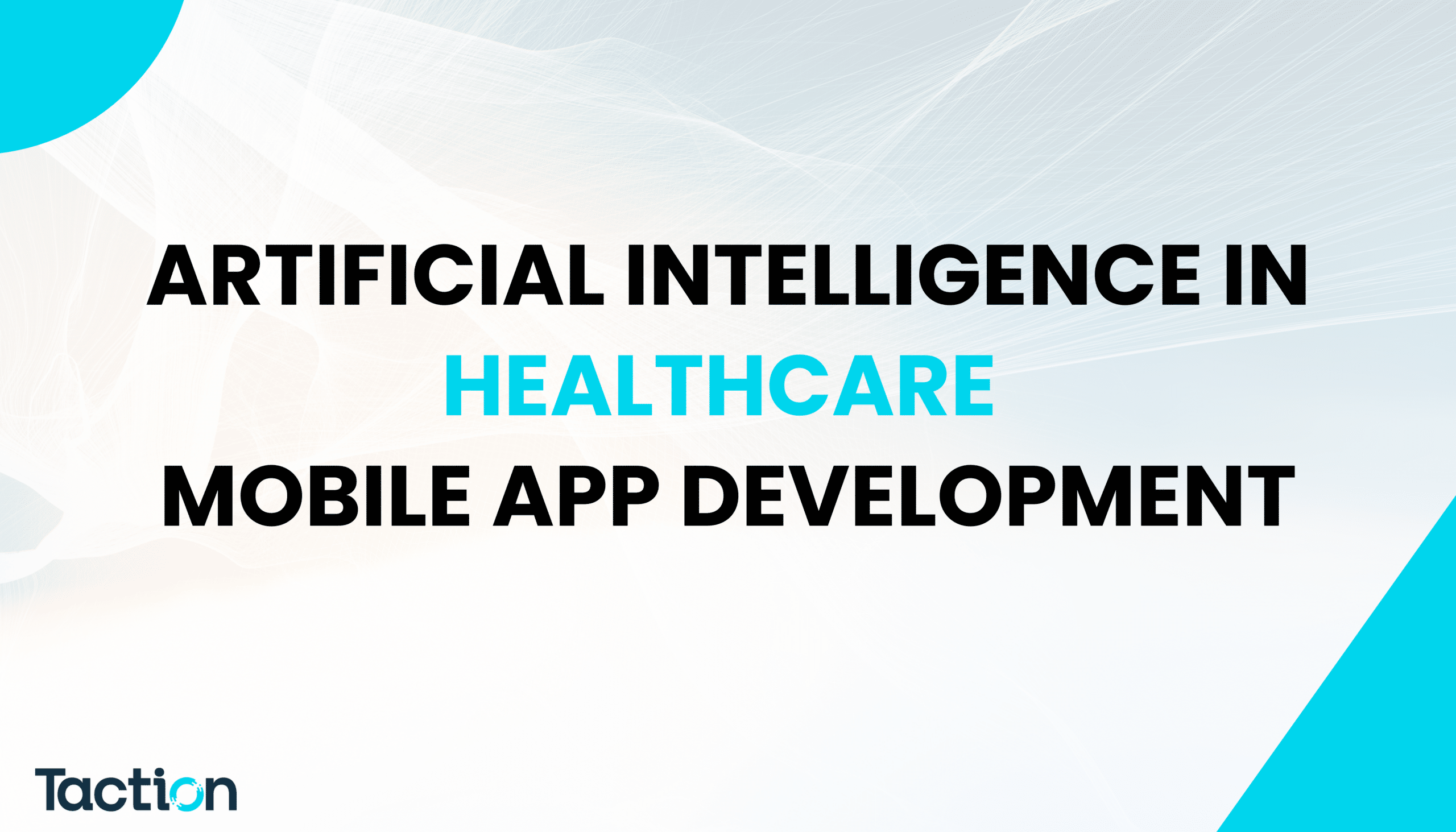Introduction – Revolutionizing Care with Smarter Healthcare Apps
Mobile apps are no longer a nice to have, but an absolute must-have in today’s digital-first healthcare ecosystem. From improving clinical workflows to delivering meaningful patient engagement, healthcare mobile apps are changing the game for healthcare organizations nationwide. However, developing a secure, user-friendly and HIPAA-compliant healthcare app isn’t as simple as writing some lines of code. It involves a high degree of industry expertise, deep understanding of regulatory frameworks and most importantly, a strategic, step-by-step development process that caters specifically to the unique needs of healthcare providers in today’s digital age.
With more than 20+ years of experience building healthcare IT solutions in the US, our team has worked with hospitals, clinics and startups to help create apps that not only deliver meaningful outcomes, but also drive tangible cost savings and ROI. In this comprehensive guide, we will walk you through 6 crucial steps that will take you from an idea to a fully functional MVP for a healthcare app that is compliant, scalable and ready for impact.
What is a Healthcare App?
Healthcare apps are mobile applications which are specifically designed and intended for the delivery, management, and enhancement of healthcare services. Utilizing modern mobile technology, these applications are designed to make the medical profession more efficient, accessible, and of better quality. Offering a range of uses and functions, such as telemedicine, EHR integration, patient monitoring, appointment scheduling, and healthcare CRM solutions, these apps can be used by both medical professionals as well as patients. Fully HIPPA and FDA Compliant, healthcare apps are perfect for those who need a secure and reliable platform that caters to the US Healthcare system.
Read: How to Build Secure Healthcare Apps That Pass HIPAA Audits
Professional Healthcare Apps
Professional healthcare apps are medical software programs designed for physicians, medical institutions, hospitals, clinics, and other clinical staff. The apps are used to run medical operations and workflows more smoothly and to increase the level of patient care. Professional healthcare apps are integrated into EHR systems, help to monitor patients in real-time, improve communication, and comply with US healthcare standards like HIPPA and FDA. This includes healthcare CRM apps, Telemedicine, and clinical support applications with quick access to clinical guidelines, patient medical history, etc. Professional healthcare apps improve productivity, prevent clinical mistakes, and provide more effective patient care.
Key features of Professional Healthcare Apps:
- Seamless EHR and CRM integration
- HIPAA-compliant data management
- Telemedicine capabilities
- Enhanced clinical decision support
Healthcare Apps for Patients
Patient healthcare apps enable and engage end users to take control of their health using the tools and information available on their smartphones. Patient-focused healthcare apps allow you to book appointments, receive reminders, track health activities, send secure messages, and access EHR information. Patient-centered apps engage end users and drive a better patient experience by making interactions more efficient and transparent. All healthcare apps we offer are HIPPA and FDA compliant to keep patient’s data safe and secure.
Key features of Healthcare Apps for Patients:
- Patient-friendly interfaces and UX design
- Secure patient-provider communication channels
- Appointment scheduling and medication reminders
- HIPAA-compliant personal health data management
Read: Top HIPAA-Compliant App Features Hospitals Need in 2025
Healthcare App Startup Ideas
Launching your own app is the best way to kickstart your healthcare startup. With the right ideas and the right features, healthcare app development projects can be very successful. The first step to developing an app is to define a practical and easily resolved problem. Medical software is an extensive field of application, so any serious medical professionals and patients will certainly have to face a number of challenges every day. This is where your healthcare app can help them and improve their life. For healthcare startups in the US, there is a wide range of opportunities for application development, including special apps for streamlining healthcare services, improving patient engagement, and improving health. Here are the best healthcare app ideas for your startup that work and are working.
Appointment App
Healthcare appointment apps make it easier to book, manage, or reschedule a medical appointment from anywhere using a mobile device. When connected to hospital CRM and existing EHR systems, healthcare providers use appointment apps to streamline patient traffic, decrease patient no-shows, and improve clinical efficiency. Appointment apps can also provide appointment notifications in real-time, automated reminders, telemedicine, HIPAA-compliance, and more. Healthcare appointment software is a must-have for US hospitals, clinics, and healthcare providers that want to increase patient satisfaction and boost efficiency.
Key Features for Healthcare Appointment Apps:
- Integration with healthcare CRM and EHR systems
- Real-time booking and scheduling capabilities
- Automated notifications and reminders
- HIPAA-compliant patient data management
Reminder App
Healthcare reminder apps are designed to aid patients in managing their medications, appointments, treatments and even their preventive healthcare routines. These apps provide real-time, personalized push notifications right to a patient’s mobile device, helping to significantly decrease missed appointments and ensure timely medication adherence. Integrated with healthcare CRM and EHR platforms, reminder apps deliver a full spectrum of health management tools while meeting strict HIPAA and FDA compliance criteria. Ideal for chronic disease management, elderly care, and overall patient wellness support, healthcare reminder apps are essential tools for US healthcare providers across the spectrum.
Key Features for Healthcare Reminder Apps:
- Customizable medication and treatment reminders
- Integration with CRM and EHR for patient tracking
- Secure, HIPAA-compliant notification systems
- Personalized healthcare management tools
Fitness App
Healthcare specific fitness apps guide patients and the general population toward healthier lifestyles, and provide tools and services to track workouts, diets, and general well-being. These apps can be integrated with a healthcare CRM platform to offer solutions such as personal wellness plans, patient activity tracking, health-focused food and nutrition, and two-way communication with care providers. A healthcare focused fitness app can combine fitness tracking, HIPAA-compliant data storage and security, and FDA recommendations for wellness technologies to create a reliable, secure, and attractive health solution for many patient populations throughout the US.
Key Features for Healthcare Fitness Apps:
- Personalized fitness and wellness tracking
- Integration with healthcare CRM for patient engagement
- Secure data handling in compliance with HIPAA guidelines
- Real-time progress reporting and provider interaction
Benefits of Healthcare App for Doctors and Patients
Healthcare mobile apps are significantly impactful for both healthcare providers and their patients. With mobile applications, providers are offering streamlined communication, greater efficiency, and better care outcomes to all of their patients. Through the use of industry leading technology, secure data handling, and EHR integration, healthcare mobile apps are solving the day-to-day problems of medical professionals and their patients in US.
Read: HIPAA-compliant healthcare app development services in USA
Benefits for Doctors
Medical applications transform how healthcare providers interact with their patients and streamline their daily tasks. Apps that integrate with healthcare CRM (Customer Relationship Management) platforms are particularly powerful as they enhance the patient care experience by making scheduling appointments, automating follow-ups, and enabling secure messaging between providers and patients more efficient. Additionally, these apps often include HIPAA-compliant data management features, which not only keep sensitive patient information secure but also easily accessible and organized. Some apps also come with advanced capabilities such as real-time patient monitoring, telemedicine consultations, and integration with existing EHR (Electronic Health Record) systems. By leveraging these tools, US healthcare professionals can deliver better, more personalized care to patients and manage their workload with greater ease.
Key Benefits for Doctors Include:
- Improved clinical efficiency and productivity
- Secure patient data management compliant with HIPAA
- Enhanced patient engagement through telemedicine and CRM tools
- Reduction in administrative workload and operational costs
- Easier access to patient information via EHR integration
Benefits for Patients
Mobile healthcare applications allow patients to receive care in a more individualized way, giving them more control over the management of their health and communication with doctors and other healthcare professionals. Appointment booking is streamlined, patients receive automated reminders for their medication and have access to their personal health records with all the information kept securely in one place following the HIPPA regulations. Fitness tracking, preventive care tools, and telemedicine services are additional functions that make it convenient for patients in the US to manage their chronic conditions and stay involved in their treatment decisions.
Key Benefits for Patients Include:
- Convenient appointment scheduling and reminders
- Direct, secure communication with healthcare providers
- HIPAA-compliant access to personal health information
- Enhanced patient engagement and self-management capabilities
- Greater accessibility to healthcare services through telemedicine
6 Steps to Build a Healthcare App
Developing a healthcare app can be both exciting and a daunting experience. There is an appropriate way to plan, analyze, design, develop, test, implement, and evaluate healthcare apps that will work successfully and with maximum efficiency. After all, you want a healthcare app that’s both HIPAA compliant and an asset to your business. We have the expertise to make that happen. Our experienced healthcare IT team has done just that for some of the top healthcare providers in the US for over 20+ years, and we can do it for you. Here’s how:
Step 1 – Do Market Analysis
Performing an in-depth market research would help you know if the development of your desired healthcare app is an appropriate solution to the wants of your target audience. Find out how the already existing healthcare apps function in the US market, and note the strengths and the gaps that exist in these applications and seek ways in which you can give a solution to these gaps. Identify the common features that integrate the healthcare CRM tools, EHR, compliance with the HIPAA and FDA. Adequate research will help your healthcare app shine among your competitors.
Key Actions:
- Analyze competitors’ healthcare app functionalities
- Assess existing CRM and EHR integration practices
- Review compliance with US healthcare regulations (HIPAA, FDA)
Step 2 – Study Your Audience
A profound comprehension of your target market’s needs and requirements is an effective way to ensure your healthcare application adequately caters to them. You must determine who your healthcare app’s principal users are, be they healthcare practitioners, patients, or caregivers, as well as their particular pain points. Take demographics like age brackets, technology savviness, healthcare demands, and user interaction preferences into account. A comprehensive examination of your US target audience allows you to create a healthcare application with a stellar user experience, high engagement, and seamless interactions between patients and healthcare providers.
Key Actions:
- Define specific user personas
- Identify user pain points and expectations
- Outline solutions integrating CRM and patient-engagement features
Step 3 – Choose App Type
Deciding on a category for your healthcare app is a crucial decision that will affect many aspects of development. Some common categories include telemedicine apps, appointment booking apps, healthcare CRM apps, EHR integration apps, and remote patient monitoring apps. The category you choose should be based on the user needs, market gaps, and compliance considerations you’ve identified. Picking the right one is important for ensuring functionality, usability, and adherence to healthcare regulations from the beginning of your project.
Key Actions:
- Define your healthcare app category clearly
- Align features and functionalities with app type
- Plan for seamless CRM and EHR integrations
Step 4 – Create Design
Great healthcare apps start with intuitive, user-friendly designs focused on delivering the best UX/UI. Design for patients, making it beautiful, easy to use, ADA accessible, and with clear navigation, simple functionality, and secure user journeys. Keep HIPAA in mind and work with US-based designers with experience in healthcare app UX/UI.
Key Actions:
- Prioritize intuitive and user-friendly UX/UI
- Ensure ADA compliance and accessibility
- Design secure, HIPAA-compliant user flows
Step 5 – Make it HIPAA Compliant
HIPAA compliance is a critical aspect of any healthcare app developed in the United States. Patient data privacy and security are of utmost importance, so your app should be designed with strong security measures, encryption, and regular audits in place. You should define data handling procedures, set up secure patient authentication, and adhere to FDA guidelines for privacy of health data. Collaborating with healthcare IT compliance experts is highly recommended to ensure full HIPAA compliance at this stage.
Key Actions:
- Implement stringent data security measures
- Regular security testing and auditing
- Ensure compliance with FDA recommendations and HIPAA regulations
Step 6 – Build MVP
Building a Minimum Viable Product (MVP) will enable you to validate app features and ensure that your concept stands the test with actual users. Your health app MVP should include the most relevant functionalities, such as CRM integration, EHR interoperability, telemedicine capabilities, or patient engagement strategies. In this phase, you identify potential challenges, receive feedback from your audience and validate your idea and further elaborate it before large-scale investment. A well-constructed MVP strategy has been shown to increase the long-term viability of your app and maintain its edge in the US healthcare market.
Key Actions:
- Develop essential, HIPAA-compliant features first
- Gather and analyze user feedback for improvements
- Plan phased expansions based on MVP performance
Healthcare App MVP: Features Checklist
Creating a Minimum Viable Product (MVP) for your healthcare app is a wise approach to validate the main idea and functionality with your actual users in the US healthcare market. Designing an effective MVP with due diligence from the very beginning will make sure that your solution indeed meets the needs of doctors, patients, and healthcare organizations. To make this process as smooth as possible, our experienced healthcare IT team has prepared an all-inclusive checklist with a list of must-have features for building a successful healthcare app MVP:
✅ User Registration and Authentication
- Secure HIPAA-compliant patient and provider sign-in
- Multi-factor authentication (MFA) for enhanced security
✅ Appointment Management
- Intuitive appointment scheduling and rescheduling
- Automatic reminders integrated with healthcare CRM tools
✅ Secure Patient-Provider Communication
- HIPAA-compliant messaging channels
- Real-time telemedicine video consultation capability
✅ EHR & CRM Integration
- Seamless integration with existing EHR systems
- Effective management of patient records and interactions through CRM integration
✅ Medication & Treatment Reminders
- Automated personalized notifications for patient medications and treatment plans
- Compliance tracking and patient adherence reporting
✅ Real-Time Health Monitoring
- Remote patient monitoring tools for chronic disease management
- Secure integration with wearable devices and FDA-approved health sensors
✅ Robust Data Security & Compliance
- End-to-end data encryption to protect patient health information
- Regular security assessments to maintain HIPAA and FDA compliance
✅ User-Friendly Interface & Accessibility
- Simple, intuitive UX/UI design for enhanced user engagement
- Accessibility features compliant with ADA guidelines
With the help of the above-given features checklist, you will have everything you need to be well on your way to developing a top-quality, HIPAA-compliant healthcare MVP app for the evolving US healthcare market.
Bottom Line
Building a successful healthcare app requires in-depth market research, precise audience targeting, seamless HIPAA-compliant integration, and intuitive design. Our expert-vetted step-by-step guide & MVP checklist will help US-based healthcare providers and startups create apps that not only meet compliance standards but also provide exceptional patient and provider experiences. Leveraging over 2 decades of specialized experience in healthcare IT solutions, our team guides you through every step, helping you tackle complexities and bring your innovative healthcare app ideas to fruition.
FAQs
In United States, the cost of a healthcare app development ranges between $50,000 to $250,000 or even higher. Costs may vary based on the complexity and functionality of the app, as well as HIPAA and FDA compliance requirements. Factors that impact the budget include the type of app (telemedicine, CRM integration, EHR compatibility), the number of features, security standards, UX/UI design complexity, and ongoing support needs. Hiring a professional healthcare IT development team can help optimize the process and achieve cost-effective, high-quality results tailored to your specific goals.
Key steps in building a successful medical app strategy include market research, audience analysis, purpose definition, UX/UI design, ensuring ADA-compliance and HIPAA security, seamless integration with CRM and EHR, MVP development, and rigorous testing. Regular user feedback, iteration, and collaboration with experienced healthcare app developers ensure adherence to US healthcare standards and high-quality app experiences.
The typical development timeline for a medical app is between 3 to 12 months, but it can vary depending on the app’s complexity, features, integrations, and regulatory compliance such as HIPAA and FDA requirements. The initial stages of market research and app design may take around 4-6 weeks. The actual development and testing phases can range from 2 to 8 months. An MVP (Minimum Viable Product) version of a healthcare app can often be developed in 3-6 months, which allows for faster market entry and iterative improvements. Collaborating with experienced healthcare IT professionals can help expedite the process and ensure on-time delivery with quality.




